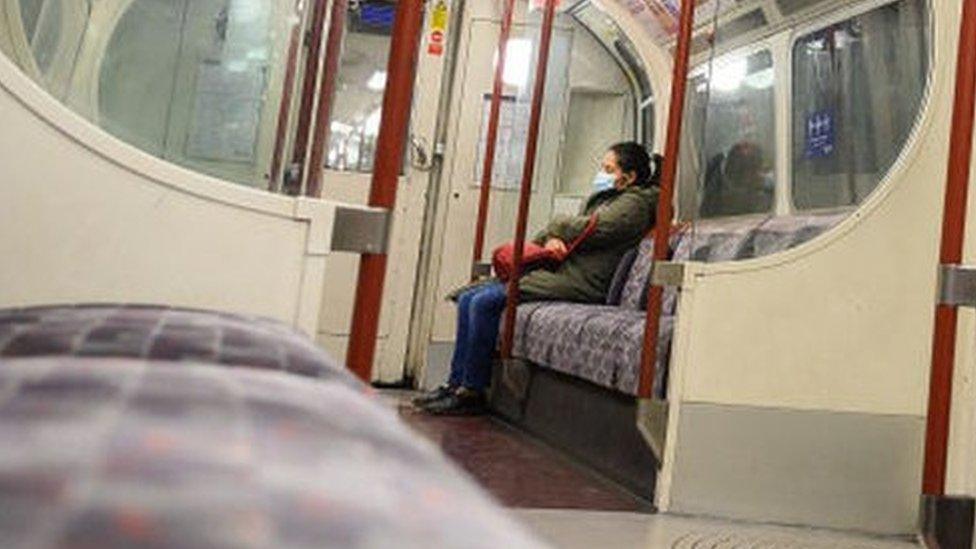People urged to intervene in sexual harassment on Tube
- Published
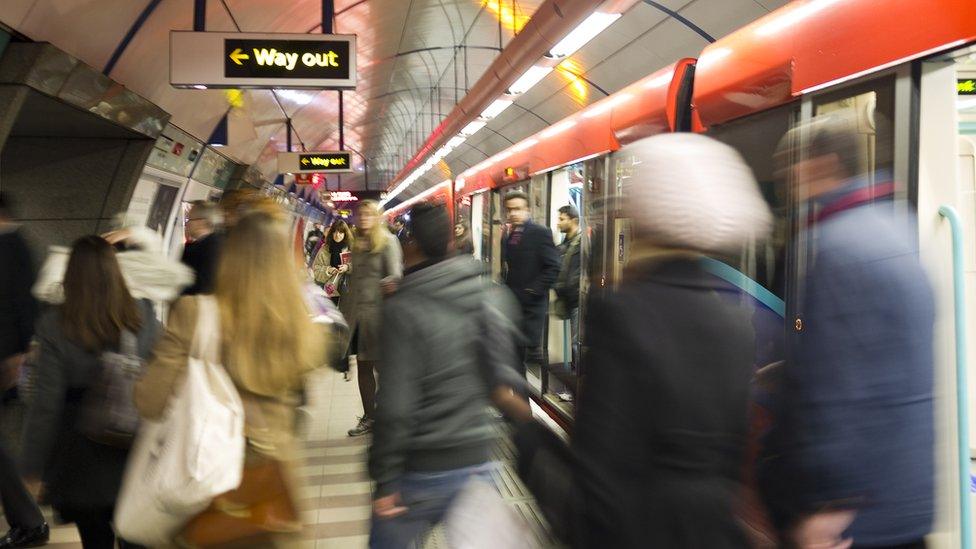
The scheme follows an increase in reported cases of sexual harassment
Londoners are being encouraged to "safely intervene" if they witness instances of sexual harassment on public transport.
Posters will appear on buses, trains, stops and stations asking people to help victims by defusing the situation and offering them support.
British Transport Police (BTP) said "everyone has a part to play in driving out this unacceptable behaviour".
The campaign follows a rise in reported cases after the Covid lockdowns.
Transport for London (TfL), which is running the campaign, said it hopes to encourage a "culture of active bystanders", by giving people clear information about how they can help victims.
The transport authority said sexual harassment was most often directed against women and girls, and could include rubbing, groping, leering, sexual comments, indecent acts, and photographing or filming someone without consent.
TfL insisted it was "not asking customers to police the network".
One victim told the BBC about her experience of harassment on the Tube
However, one victim of sexual harassment on the Tube told BBC London she did not think passengers would behave any differently.
The posters urge witnesses of sexual harassment to help victims by creating a distraction, making notes, asking if they are OK, and reporting the incident.
TfL said it believed interventions such as this would mean victims would feel less isolated and more likely to report the incident.
The campaign is supported by BTP, City of London Police and the Met Police.
TfL said its network was patrolled by more than 2,500 police and police community support officers, and 500 of its own enforcement officers.
It added thousands of frontline transport workers, including bus drivers, had been trained to support victims of sexual harassment, and there was an "extensive" CCTV network.
Louisa Rolfe, the Met Police's Assistant Commissioner said: "Research suggests perpetrators re-offend so your intervention or just reporting to police can make a big difference."
Mahaila Fontaine told the BBC she was sexually harassed by two young men on a Tube in 2021. "I felt violated. And shocked. Also a bit scared because I didn't want it to escalate," she said.
"It kind of angers me that people (bystanders) don't get involved".
She believes most bystanders will continue to turn a "blind eye" because they will be afraid the situation "turning ugly".
"How can they help without drawing attention to themselves?" she added.
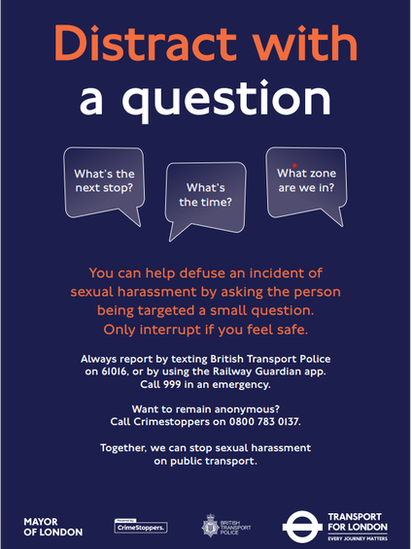
Posters like this will appear across the transport network in London
The campaign follows a rise in reports of sexual harassment on public transport when the Covid-19 lockdown restrictions eased.
BTP said it received 421 reports between April and October 2021, up from 259 over the same period in 2019.
TfL said the campaign followed research by TravelWatch suggesting most people would want to help a fellow passenger who was a victim of crime but felt there was not a clear way of doing so.
London's deputy mayor for transport Seb Dance said there was a "zero-tolerance" approach to sexual harassment on London's public transport network.
Sexual harassment incidents on the bus network can be reported via the Met's website, external, while those on other TfL services should contact BTP by texting 61016 or using the Railway Guardian app, external.
Reports can also be made anonymously to Crimestoppers, external. In an emergency people should dial 999.

Follow BBC London on Facebook, external, Twitter , externaland Instagram, external. Send your story ideas to hellobbclondon@bbc.co.uk, external
- Published1 August 2022
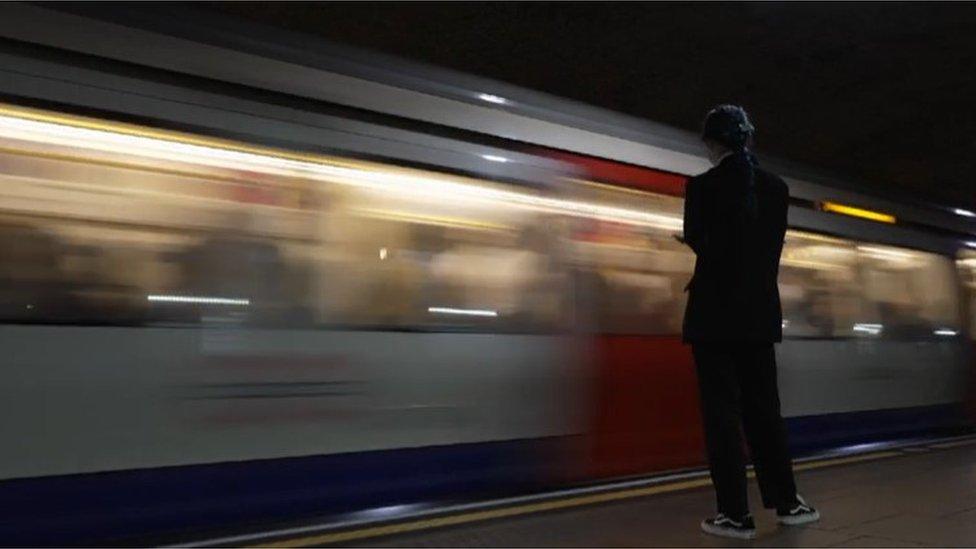
- Published30 April 2022
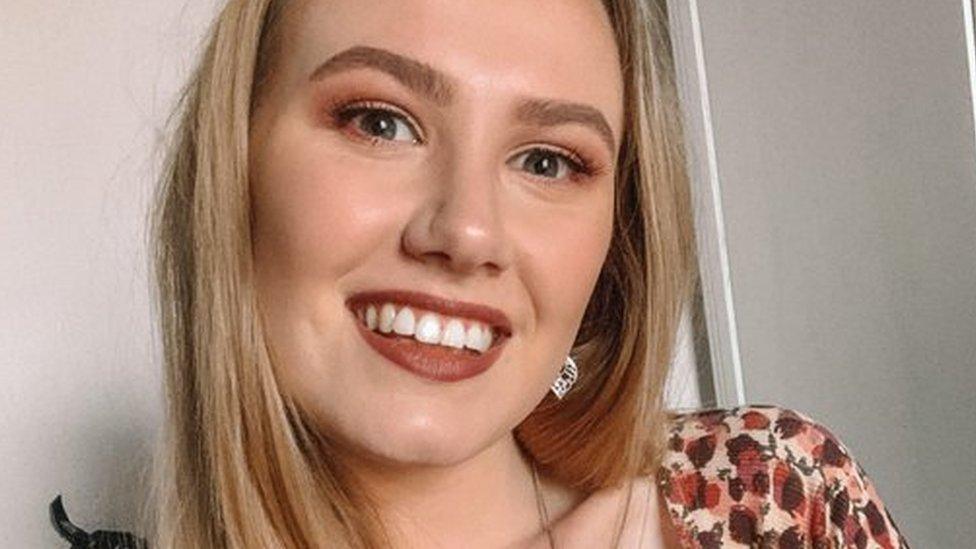
- Published2 December 2021

- Published4 November 2021
